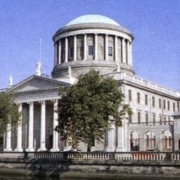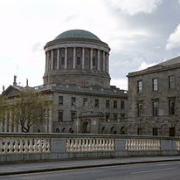HIGH COURT DECISION RELATING TO REVOCATION OF AN EU RESIDENCE CARD AND THE IRISH PASSPORT OF MINOR CHILD
Ms Justice Phelan of the High Court has delivered judgement in the case of AKS v the Minister for Justice [2023] IEHC 1, which addresses the impact of the Supreme Court judgement U.M ( a minor) v Minister for Foreign Affairs and Trade and Ors [2022] IESC 25.
The facts in the AKS case arise from the decision of the Minister to revoke a permanent residence card to the parent of an Irish citizen child on the basis of an allegation of fraud. The decision of the Minister was to find that the EU Fam Residence card was revoked in its entirety on the basis of fraudulent conduct. It was submitted by the Applicants in this case that the 2015 Regulations do not permit retrospective revocation and furthermore that a revocation of an EU Fam residence card to the parent of an Irish citizen child, does not impact that child’s right to Irish citizenship. The Applicants also argued that the review process under the 2015 Regulations does not sufficiently meet the procedural safeguards and protections required by Directive 2004/38/EC.
In following the Supreme Court judgement UM, which arose in the context of revocation of refugee status of a parent rather than an EU Fam residence card, Ms Justice Phelan held that “Neither the 1956 Act nor any other law identified to me or by me provides for the denationalisation of a citizen by birth.”
Judge Phelan further confirmed that The 2015 Regulations make no provision for the acquisition or loss of citizenship and that the 2015 Regulations, properly construed, do not provide for a power to retrospectively nullify vested citizenship rights of a non-party child,
Judge Phelan held:
Neither Regulation 27 or 28 of the 2015 Regulations provide in express terms for a retrospective nullification of permissions which have issued on foot of false or misleading information or by reason of a marriage of convenience. Indeed the provisions of Regulations 27 and 28 are couched in the present tense both as regards a permission which “is being relied upon” and a marriage which “is” a marriage of convenience (as opposed to a post-divorce situation where reference would be made to the marriage in the past tense). It is also clear that the Regulations do not mandate the revocation of a permission that “is being relied” upon but they empower revocation by providing for a discretion (“may”) to revoke. This is in contrast with the language used in the 2006 Regulations where revocation was mandatory.
In contrasting the facts of UM and AKS, Ms Phelan concluded that in both contexts the relevant legislation did not envisage retrospective revocation where derived rights are impacted:
It seems to me that the starting point should be that the principle of prospective operation of legislation and legislative provisions should apply when interpreting the provisions of the 2015 Regulations and that it is appropriate to approach those Regulations on the basis that they are not to be presumed to permit retrospective alteration of the legal nature of past conduct and events affecting an acquired status unless clear words are used, mindful of course that the 2015 Regulations, as transposing Regulations, also require to be interpreted in a manner which gives effect to the Directive. It is clear from UM that the concept of retrospective nullification affecting acquired status while not outlawed in theory is considered by the Supreme Court to be generally unsuited to the public law context, and particularly unsuited to addressing historic immigration status and derived rights and requires a clear legal basis.
In relation to the Minister’s power to revoke the residence permission of the applicant, with the impact of the revocation only impacting his own position, and not the position of his minor child, the Court concluded:
Contrary to the First Respondent’s asserted understanding of her powers, it does not follow from a finding of fraud or marriage of convenience that a residence permission will be automatically revoked. While it is an open question as to whether the First Respondent had been vested with a power to retrospectively revoke the Second Applicant’s EU residence rights, it is nonetheless clear that any power was discretionary and therefore fell to be exercised in a proportionate manner having due regard to affected rights and interests.
If you have been impacted by these important issues, Please contact Berkeley Solicitors for advices.



